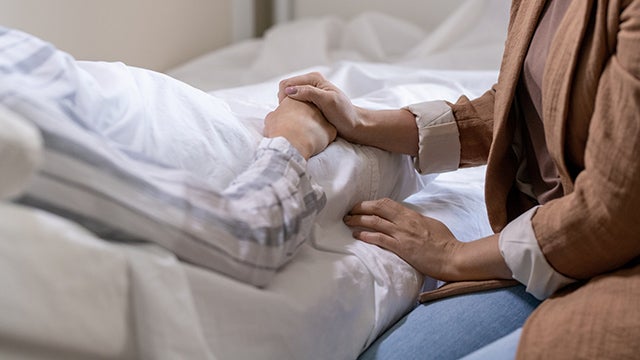On September 22, 2022, The Religion & Society Program gathered with partners, colleagues, network members, and friends to celebrate ten years of work in building religious pluralism. Several leaders offered remarks and reflections on the last decade and offered insight as to what the future might hold.
Zeenat Rahman joined the Inclusive America Project (IAP) in 2016 and led IAP, which later became the Religion & Society Program, as its Director from 2017 to 2021. Her remarks at the ten-year anniversary event, “Religion & Society: The First Decade” are presented here.
“It’s good to be back and have the opportunity to come back home.
Meryl Chertoff, I hope today for you is a recognition of the decade of service and work, of what you built and of what this has become. It is way beyond my wildest expectations, even when I left the program a year ago. We often called this a labor of love, the Inclusive America Project, and it was. She did it with almost no budget and very little resources, but she kept the dream alive. The important lesson in that for us, for me, is that she did it with no ego. When Allison [K. Ralph] and I and Meryl started to build in 2016, when the external conditions were worse than in 2011, we also approached it with no ego.
We didn’t do it for our name. We did it because we realized that the Aspen Institute is an important asset, and we realized that this era needs more focus on religious pluralism. I think if there’s one thing that marks my time that I spent at the Aspen Institute, it’s that we aggressively tried to partner with almost every single one of you in this room.
So if you’re a funder, a faith leader, or anyone, I don’t think you ever heard us say, “No, our thing is better,” because we were trying to build up the field. Meryl always said, “We have to eat the elephant one bite at a time.” And so, Meryl, that’s what we tried to do. I hope we made you proud. This legacy is really amazing. I’m a little bit in awe just looking at this audience, and this audience is really a microcosm of the Powering Pluralism Network, the Religious Pluralism Funder’s Circle, and everything else that has grown.
When I come here, and see the two of you [Allison & Simran Jeet Singh], and don’t know most of the staff here, that is success, a year later. And then, I think Allison is the thread that runs through the whole thing. Meryl found her through the El-Hibri Foundation, she came on as editor of Pluralism in Peril, and stayed on throughout our tenure. She really ran operations and was the fortitude and the strength in keeping this alive through a pandemic, through a change of leadership, and into what it’s become now. I hope you feel proud today and congratulations to you. Simran, I’m so glad you’re in this position. I can’t wait to see what you’re going to do in the next decade.
And a comment for everyone in the room: things are worse externally, again, than what we found when we started in 2011 and in 2016. What that means is that our work is a drop in the bucket. To be very clear, I often think about who the “us” versus “them” is. If the “us” are folks who believe in pluralism and in our individual identities playing a part in this great American project, and the “them” are hateful people who believe that this country is only built for a few, then we really have to coordinate and work together. I hope for the next ten years in all of our work that we follow in Meryl’s footsteps of doing this work with no ego and with a very generous spirit, leaning into partnership. Thank you.”
Zeenat Rahman is the Executive Director of the Institute of Politics at the University of Chicago. In addition to her work as a Director with the Aspen Institute’s Inclusive America Project, she previously served the U.S. Department of State as a special advisor on global youth issues; as an acting director at the Center for Faith-Based and Community Initiatives in the U.S. Agency for International Development, and as a director of policy at InterFaith Youth Core (now Interfaith America).

